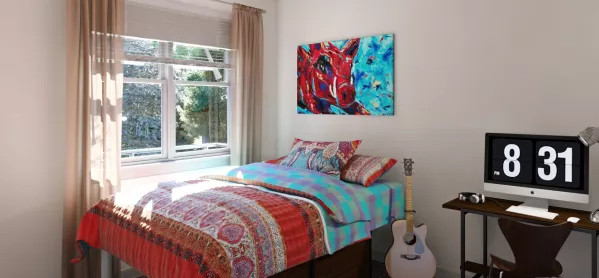Teachers are being expected to “live like students” in halls of residence because of a housing crisis, a union conference had heard.
School staff, especially young teachers, are being forced to live in unsuitable accommodation, with little chance of getting on the housing ladder, according to the NUT section of the National Education Union (NEU).
Delegates at the union’s annual conference in Brighton also warned that a lack of decent housing can affect young people’s performance in the classroom.
Lucy Coleman, a union member from Oxfordshire, said: “Single people are being forced to live in shared housing. I know of one colleague in her mid-30s who rents a single room in a family home and can only dream of getting on the property ladder.
“I’m told of another who in return for a promise that her rent would not increase has accepted that no repairs will be made to her living accommodation.
“Teachers are also in Oxford being encouraged to live in what is essentially halls of residence.
“Why are teachers, who are professionals, expected to live like students?
“The current housing situation is unacceptable for many people.”
Ms Coleman, who moved back to Oxford four years ago and is living in private rented accommodation, also told delegates: “Oxfordshire is now the most unaffordable place to live in the UK. It’s increasingly difficult for schools to retain young teachers who are moving to London because it’s more affordable.
“Very few of our students in Oxfordshire will be able to live where they grew up, and I have seen how hard it is for teachers and support staff to find homes which are close to their places of work.
“House prices and rents have continued to rise and there is a lack of affordable housing.”
The union passed a resolution which warned that there is a “national housing crisis with house prices now averaging 6.5 times average annual wages” and that in many cities, the ratio is higher.
“Many teachers - especially young teachers - have therefore been forced into private rented accommodation and are unable to afford or even aspire to a family home,” it says.
The motion also argued: “In parts of the country the housing crisis is exacerbating an already serious situation with regard to teacher shortages.”
It called for explicit references to housing issues as part of the union’s pay campaign.
Proposing the resolution, Chloe Tomlinson, from Wandsworth, south London, said: “While it may seem far away from the classroom, the housing crisis affects teachers from many angles.
“From our own difficulties finding housing, to the impact it’s having on the children we teach, and the pressure it’s putting on parents.”
She said she is aware of parents who are concerned about the impact over-crowded living situations can have on their child’s performance in school.
“They are right to worry,” she said.
“There is a significant association between over-crowded housing and poor physical and psychological health in young children.”
Ms Tomlinson, said she moved to London to become a teacher four years ago.
“During this time I have moved house seven times. I have slept on people’s floors, stayed with friends’ parents and had to cycle seven miles to work.”
She said she is now living in a flat share with chronic damp.
“This is normal life for many of us. It affects our wellbeing, or ability to focus, our physical health, our mental health and our ability to do our job properly.
“Teaching is a stressful enough job as it is, without a secure base, this can become unmanageable.
“In areas such as London, unstable housing creates an unstable workforce and contributes towards high turnover of staff in schools.”




